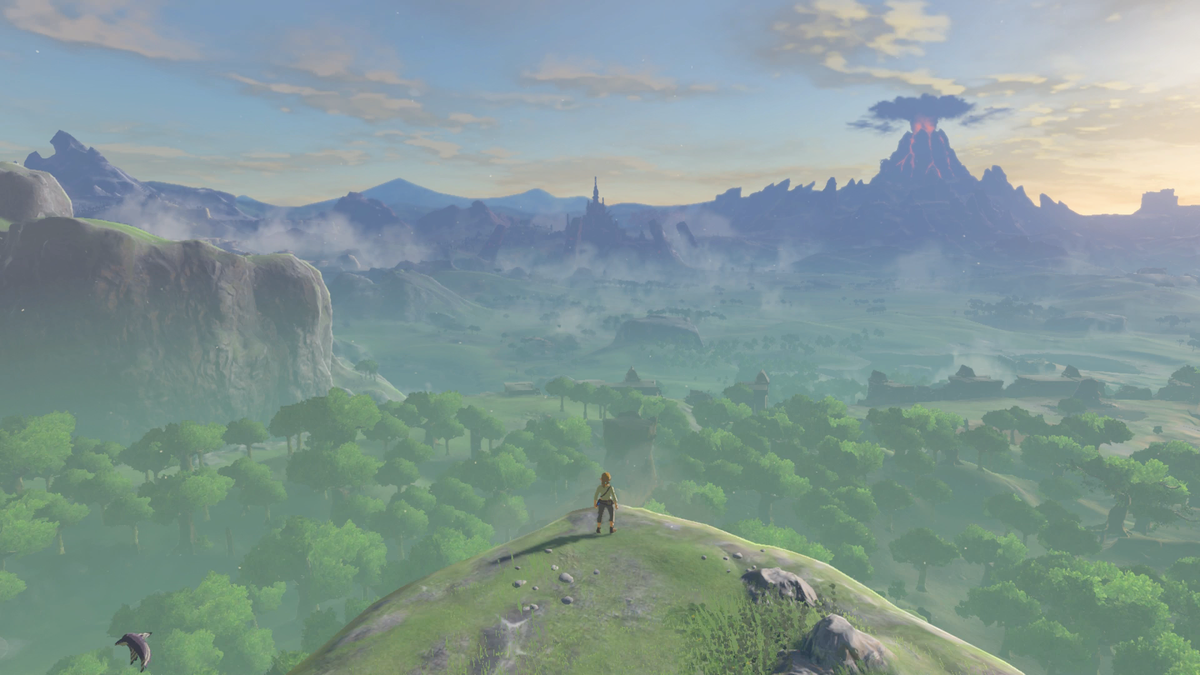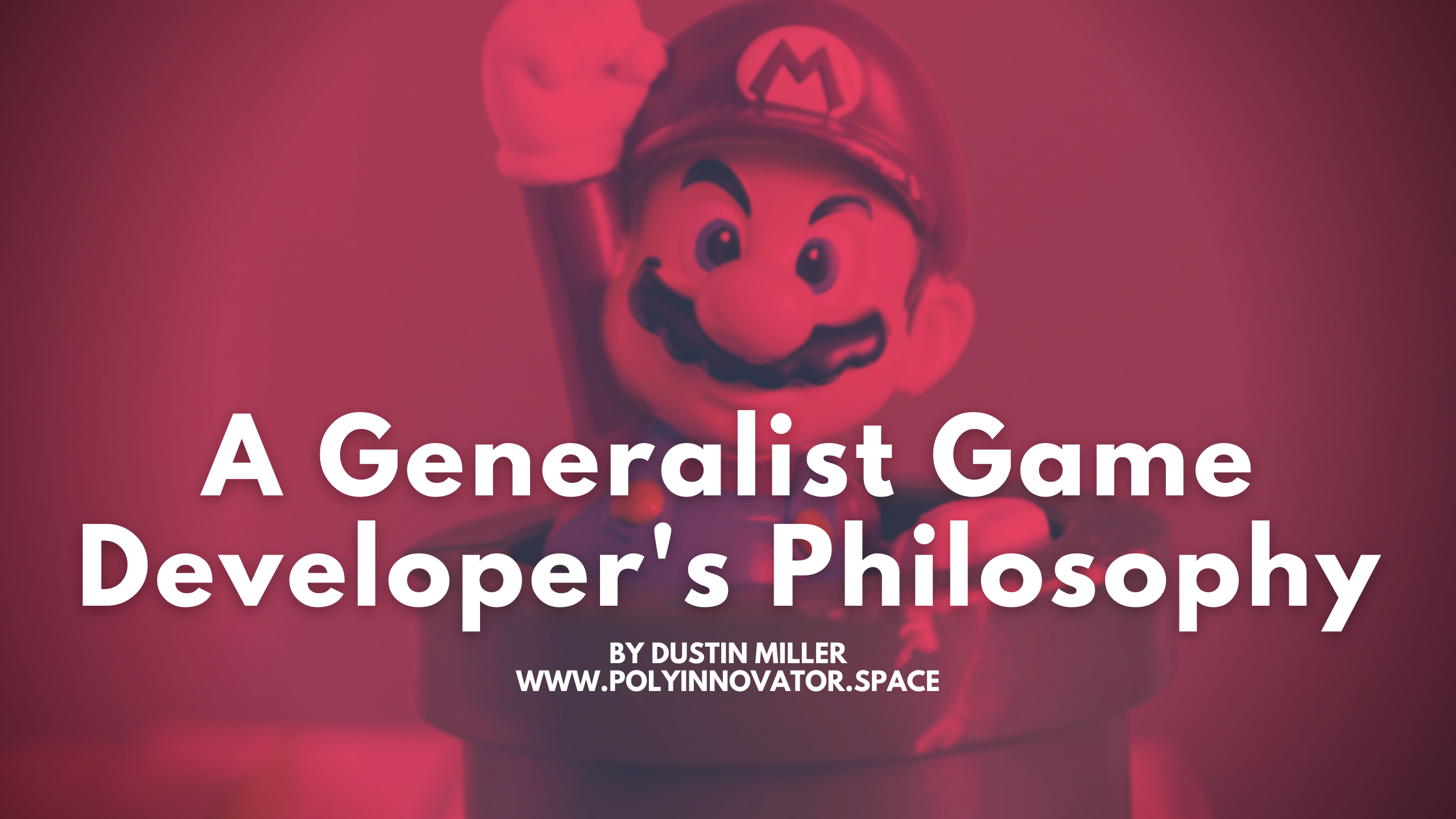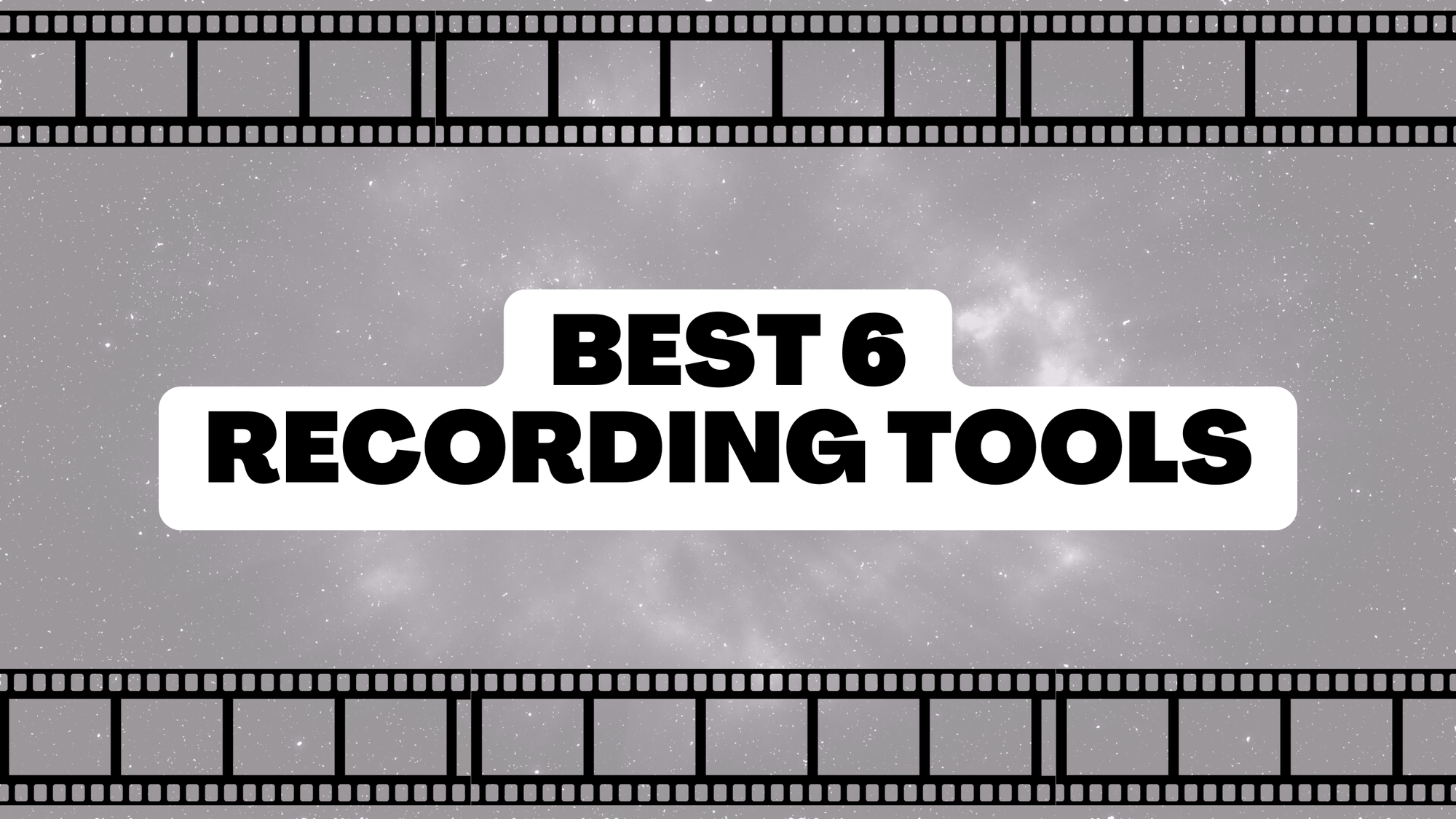“I always look for designers who aren’t super-passionate game fans,” Mr. Miyamoto said. “I make it a point to ensure they’re not just a gamer, but that they have a lot of different interests and skill sets.”
-Shigeru Miyamoto
NYTIMES
Personally I've grown up playing Nintendo games of all kinds, and playing on all of their consoles. One could say I am a super-passionate fan, as I've literally played on pretty much every single Nintendo Console.
I even was so passionate about Zelda and Pokemon (two Nintendo franchises), that I started doing pixel art spriting to create my own assets to games. From creating my own designs entirely, to remaking old ones into new versions, and even designing intricate world maps. I've certainly expressed a serious devotion to the series, and with the quote he had made there, I could theoretically be a part of that group.
However I think it is more crucial to look at the second half of the quote. Having a lot of diverse interest and skills. He recognizes from a business point of view, but also from a creative standpoint; That having a wide range of knowledge areas, is crucial to cultivating a unique perspective.
A Quick History of the Zelda Series
Not only did I think this was a fantastic view, and wanted to share, but I also thought it would be useful to use the series as an example of Generalist Game Development.
With any sort of production whether that a product in a traditional business, or a software in a modern business (not saying that hard items aren't modern!). There are places for each kind of person, and these roles are what allow us to actually get the job done. I'm all for the super hero solopreneur, and I've been trying to find ways to get a lot done by myself. However I know for a fact I could achieve more with others.
That I think is a very important point to make, is that even those who are polymathic generalists can only do so much. Leonardo Da Vinci is one of the Pillar Polymaths of history, and only he could ever do so much. One of the reasons he is so highly regarded, is BECAUSE he ended up doing so much in his lifespan. However there is only ever so much time, and ability to learn so many skills.
This is why I think Miyamoto's philosophy is really important to share. For one I would certainly consider him a generalist. He went to school for Industrial Design, yet he became a supremely creative game designer. Still in the design space of course, but IMO two separate ends of the niche. Additionally, he has worked in many different aspects to game development. From designing the characters and games, but more often than not now leading as director or producer.
When he stated he would rather have someone on his team that is not super-passionate, which would be a gaming specialist, rather he wanted a person who has a wide range of skills. Meaning he values the idea generation that a generalist would provide, rather than the deep knowledge of a gaming specialist.
We Need Both
One thing I've tried to make clear, whether I am talking to polymaths or to specialists, is that both are necessary. When you are trying to get a project done, then sometimes it really is best to give the task to a specialist, so that you know it will get done swiftly and to a certain standard.
Conversely, if you know that the timeline is malleable, and you care more about the creative aspect. Perhaps then having a generalist is more fruitful on what could come from the work. Miyamoto is also no stranger to going against the grain. In fact he has made some decisions of non-conformity purely based on what the trends are doing. I resonate with that because as a fitness instructor I don't like it when my classes predict what I do next, so I'll switch it up on them.
One key point to make as well, is that despite needing both kinds of people in the workplace, there is a certain level that is "expected". At this point in time most standard companies would have an 80/20 or even 90/10 ratio of specialists/generalists. This is why many of them take too long to innovate, and oftentimes are the reasons of weakpoints in the chain.
Miyamoto, as well as Nintendo in general, are both very generalist centric from what I can tell. Not only do they go out of their way to make sure that junior and senior staff are heard, but there is a ton of cross pollination. When someone proves themselves in a project, then oftentimes they get promoted for the next big project (from what history has shown). Meaning even if the role they go into isn't necessarily on their resume, such as when Miyamoto went from being a game designer of Donkey Kong, to project lead on one of their big projects. He was not necessarily proven to be able to do that job, but his skillsets in various domains proved that he was capable of adapting.
Oh, and by the by those projects he ended up working on after were Mario and the Legend of Zelda.
Nintendo Has Proven...
That for one we don't need to follow the standard practices in order to be successful. Just to put it in perspective, the Nintendo Wii U was a commercial flop, barely selling enough units in the entire lifespan of the console. It was a great system, with some amazing games. However the marketing failed at delivering, despite the fact that it's predecessor and successor both ended up being major hits.
Those being the Wii and Switch.
The perspective however that I wanted to convey is that the company has been around for a long time. I mean a LONG time, since before the 2nd industrial revolution. Selling playing cards, and then toys, and only then getting into video games. They built up a ton of influence purely because of the company's age, but also due to the fact that they care about their games and customers.
They built up so much revenue from those playing cards, and from all of their major console successes. That despite the year of when they released the Wii U being financially negative, they could literally have 20 years straight of being in the red. Then STILL come out on top after two decades. Not only because they have the funds, but because they have the teams behind the company to innovate and change.
I think that is a very important point to make, as to how successful they have become. I would argue that the MAIN reason why isn't because of their ingenuity or innovative game experiences, as those are the results, but rather their generalist company structure and operations.
It is because they take a more open-ended approach, that they are able to achieve those successes. They don't follow the traditional norms, and even sometimes purposefully go against them just to prove themselves.
The ideas behind satisfying gameplay and learning the mechanics
His philosophy is "make fun games that everybody can play", and to me that is a generalist mindset.
Specialist companies like EA think "let's make games that everybody can buy, but only a certain group would like", such as Madden or Fifa, or in the case of Starwars Battlefront the nerdy super-passionate (I say that with nerdy reverence).
They are a very successful company, but they are rather hated by the gaming community. They don't seem to care about the customer's experience, only the bottom line. Squeezing every penny out of the lifetime value of a gamer customer.
Nintendo on the other hand, not only doesn't need to worry about money, but they also haven't really cared. They knew that money would come with a solid quality product, and then worked extra hard at creating that. Rather than adding DLC or microtransactions.
I remember how shocked I was when I expected a Zelda or Pokemon game to have DLC at one point, then the series wouldn't get them for another 2-3 major installments.
Creating experiences that have value, and that are of an interdisciplinary result.
Remember the Ways of Nintendo
Regardless of what field you work in, there is a lot that can be learned from Nintendo and Mr. Miyamoto. I only scratched the surface, this was a post I wanted to make for a long time. It wasn't until I found that quote that I had the catalyst to finally write it.
Even a decade ago I could tell he was a generalist, and I had admired him as a hero of mine. In fact as a super-passionate gamer I wanted to work for him, and of course add my 2 cents on various game series. Although more importantly work in that diverse environment.
I probably still would too!
It was then that Fujibayashi and his team realized they’d made something special—a game where the act of climbing could be just as fun as riding horses and slashing monsters. From there, they designed around a concept that they called “multiplicative gameplay,” referring to the way in which Breath of the Wild’s various objects and mechanics work to enhance one another. -Kotaku

https://kotaku.com/when-miyamoto-first-played-zelda-breath-of-the-wild-h-1793017234
https://www.nytimes.com/2017/12/29/technology/nintendo-switch.html

![Official Website for Dustin Miller PolyInnovator [LLC]](https://polyinnovator.space/content/images/2025/03/polyinnovator-logo-2024.png)













